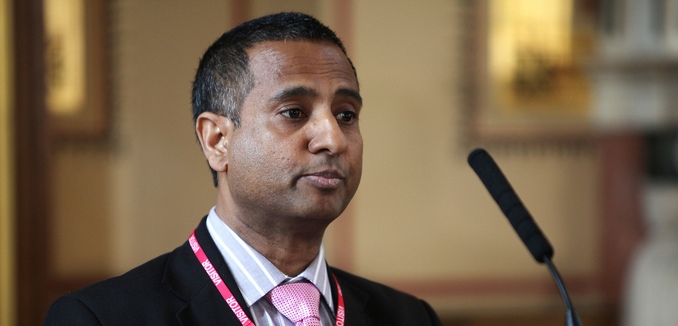The latest report issued by Ahmed Shaheed, the United Nations Special Rapporteur on the situation of human rights in Iran, highlights a variety of harsh punishments meted out by the Iranian regime, including executions, floggings, amputations, and even blinding, Benjamin Weinthal, a research fellow at the Foundation for Defense of Democracies, reported for Fox News on Tuesday.
More than 480 persons were flogged during the first 15 days of Ramadan for not fasting, and two people convicted of theft had limbs amputated just weeks before the U.S. and other world powers announced a nuclear agreement with Tehran, wrote Ahmed Shaheed, the UN’s special rapporteur on the situation of human rights in Iran, in a 26-page report. “The Government maintains that only three individuals were subject to this punishment for their non-observance of the fasting practice.”
In another case highlighted in the report, the left eye and right ear of man identified only as “Hamid S.” were removed surgically. He had been found guilty of attacking another man with acid, resulting in the loss of the man’s eye and ear. Iran forcibly blinded another man in March as part of its “retribution-in-kind” punishment. The man was with charged tossing acid on another man in 2009.
These punishments were described by Weinthal as displaying “medieval barbarity.” Shaheed’s full 26-page report is available here (.pdf).
Weinthal also emphasized the ongoing persecution of Christians by the regime, some of whom were charged with “propaganda against the State,” “advocating for Evangelical Christianity,” and “establishing house churches.” Maryam Nayeb Yazdi, a Canadian-Iranian human rights advocate, was quoted as warning, “Human rights must be on top of the agenda in any talks between the world community and Iranian authorities. For as long as the world ignores human rights in Iran, the situation will just continue to get worse. The world, including mainstream media, needs to open its eyes to human rights violations committed by the Iranian regime, as they are comparable to that of ISIS.”
Reuters’ coverage of Shaheed’s report also emphasized Iran’s repression of journalists, around 40 of whom have been jailed this year, as well as the rapid rate of executions in the Islamic Republic, which Shaheed noted may exceed 1,000 this year. In a report released this past July, Amnesty International similarly predicted that, “If Iran’s authorities maintain this horrifying execution rate we are likely to see more than 1,000 state-sanctioned deaths by the year’s end.”
According to Reuters, Shaheed’s comments “echo an August report by U.N. Secretary-General Ban Ki-moon which said promises of greater freedoms for Iranians have not resulted in any major improvements in human rights and freedom of expression.”
Earlier this week, it was reported that two Iranian poets were sentenced to prison and 99 lashes for shaking hands with a member of the opposite sex. Last year, Iranian actress Leila Hatami apologized after being threatened with lashes for kissing the president of the Cannes film festival on the cheek.
Last week, U.N. Secretary General Ban Ki-Moon expressed concern over the high rate of executions in Iran and the execution of minors.
In August, Iran forged documents to suggest that Shaheed was taking bribes from Saudi Arabia in order to undermine his credibility.
In Should the U.S. Take Iran’s Human Rights Problem More Seriously?, which was published in the April 2015 issue of The Tower Magazine, senior editor Ben Cohen interviewed Shaheed and profiled his efforts to fight the Iranian regime’s flagrant violations of human rights.
[Photo: Foreign & Commonwealth Office / Flickr ]




